It is rare I ever feel sorry for a politician, but I did on Wednesday.

Not only did Theresa May have to face down a stage invasion from a comedian handing her a mock P45; she then had to contend with a voice that almost failed her completely. It is not surprising she looked close to tears as she finally ended what was, quite literally, the toughest speech of her life.
Whatever your views on Theresa May, none of us should accept so-called funnymen like Simon Brodkin, who is best known for his character Lee Nelson, being able to get so close to our prime minister in these incredibly security-conscious times.
Her speech had been heavily trailed as the day the Conservative Party would reveal vast numbers of new council homes, but it will be remembered for Brodkin’s protest and the enormous frog in her throat.
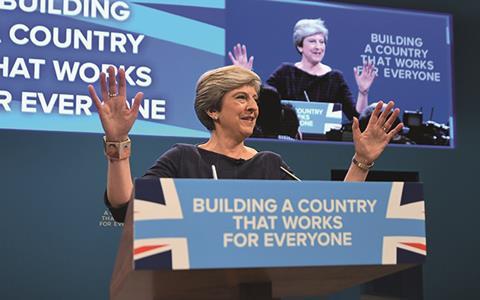
Perhaps that is just as well, as in the 24 hours before May took to the stage, Tory spin doctors had leaked that she would be announcing a huge council housebuilding programme the like of which this nation had not seen for 66 years.
Other than telling us she would “build a new generation of council houses to fix the broken housing market”, there was precious little detail and certainly no commitment to a shift in policy to allow local authorities to raise finance to build the social housing the country so clearly needs.
Not nearly Macmillan-esque
Instead, May committed an extra £2bn in funds for affordable homes, bringing the government’s total funding for the sector to £9.1bn. It transpired later this would equate to a paltry 5,000 homes a year for social rent, which is probably why she didn’t mention it in the speech - and is not going to help the 1.2 million people on council housing waiting lists who are a long way from being able to afford a so-called affordable home.
In October 1951, Winston Churchill, like May in June, only just scraped to victory in a general election. He charged Harold Macmillan with the task of building the 300,000 council homes the then Tory party had promised in its manifesto. It was this kind of government-sponsored building programme we had been led to expect from the current regime, but it wasn’t what we got.
Find out more: Theresa May’s speech - property reacts
Instead, May put the responsibility for solving the housing crisis squarely upon the shoulders of the commercial sector. She told the private sector that while she will deliver the land, they must do their “duty to Britain and build the houses we need”.
She also mentioned the recently announced £10bn top-up for the government’s Help to Buy scheme, but, as Steve Norris points out in his column, there is a growing consensus that Help to Buy has driven up prices rather than made housing more affordable for those who most need roofs over their heads. The scheme was due to end in 2021 and, as Norris writes, “it should have been allowed to wither on the vine”.
Sadly, May’s cough-and-splutter-ridden speech gave us very little we have not already heard. She didn’t just lose her voice, she lost the will to tackle this most urgent of the UK’s issues with any worthwhile policy that will come close to solving the housing crisis.























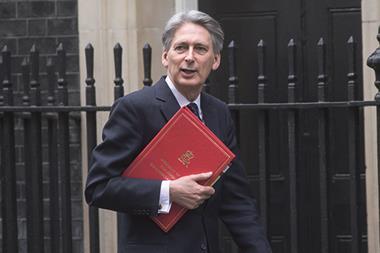

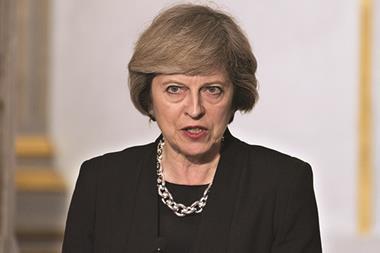
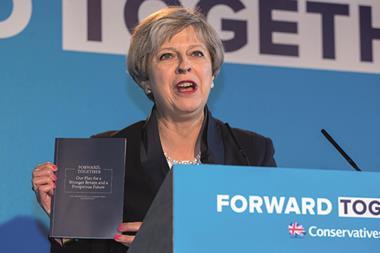
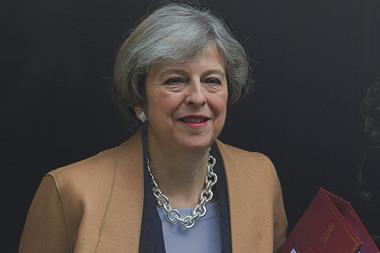
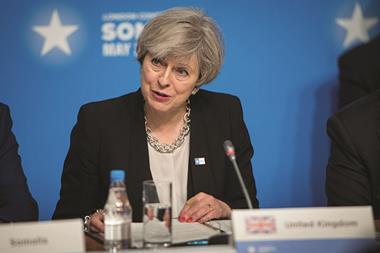
No comments yet